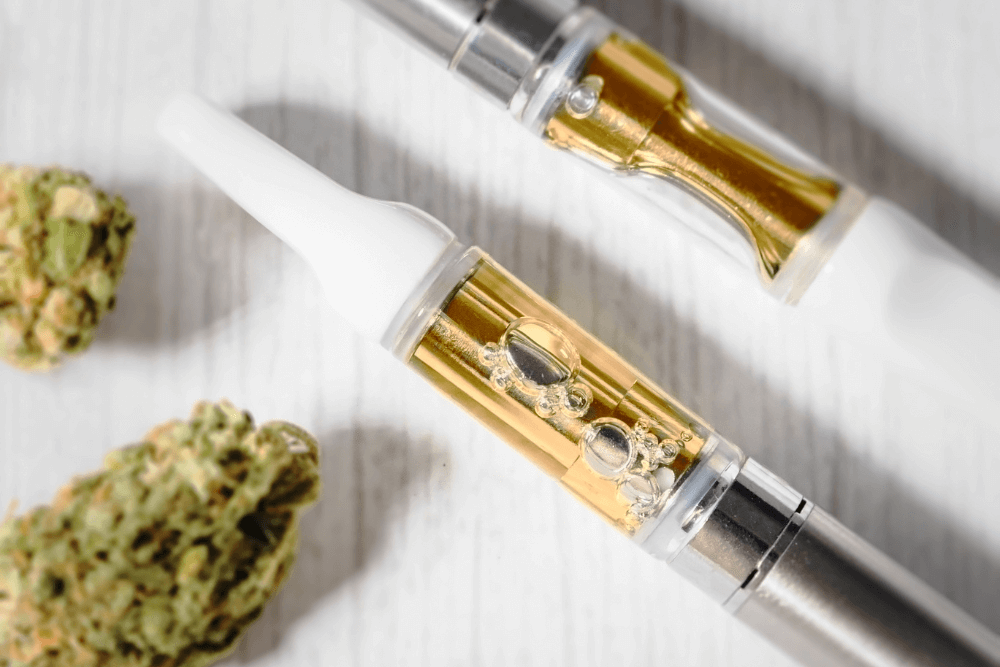In 2021, massive China-based e-cigarette manufacturer Shenzhen Smoore Technology Limited (the parent company of CCELL) initiated a proceeding before the US International Trade Commission (ITC) in which it alleged that Advanced Vapor Devices (AVD) and 37 other vape hardware companies infringed upon its patents.
After roughly a year and a half of legal proceedings, the ITC ruled that the vape hardware companies did not infringe on CCELL’s intellectual property related to ceramic core vape cartridges. This was a victory for not only the US cannabis vaping sector but the cannabis industry as a whole.
From our perspective, CCELL’s litigation appeared as an attempt to drain competitors’ resources and eliminate competition. By refusing to stand aside, we were ultimately vindicated by the ITC’s ruling.
The Implications of CCELL’s ITC Proceeding
CCELL alleged that AVD and the other respondents had infringed upon three of its patents. However, the ITC ultimately ruled that one of CCELL’s patents was improperly obtained and the respondents’ products did not infringe on the other two patents. The ITC also determined that CCELL failed to establish a “domestic industry,” which is required for ITC claims since such proceedings are designed to protect US interest in fair trade.
The more worrisome part is that, had CCELL been successful in proving its allegations, the ITC would have barred the importation of the infringing products, resulting in CCELL gaining a stranglehold on ceramic core vaporization technology. This would have had a far-reaching impact on the broader vape industry. By eliminating the competition, CCELL would have placed itself in a position to control the market, pricing, and timing of new product releases. Inevitably, customers would have faced the prospect of higher prices and slower innovation cycles—both natural results of decreased competition.
We firmly believe consumers deserve the innovation, variety, quality, and fair pricing that competition brings. In our view, the industry is large enough to handle fair competition. Commercial success should come as a result of offering better products, service, and prices—not from using litigious tactics to drain competitors’ resources.
How the Vape Industry Fought Back
Our response to the lawsuit involved deep intellectual property (IP) research and engaging the right advisors, without whom we could not have succeeded while shouldering the burden of the litigation. During the litigation, we continued to capture further market share, gain clients and support our current clients by doubling down on our strategy of creating high-quality products and delivering exceptional customer service.
Operating from a cannabis-centric perspective that does not appreciate a bully in the industry, we put together a joint defense group, including The Blinc Group and Greentank, among others. After all, we are competitors—not enemies.
Together, we’re able to cooperate on policy reform, laws and lobbying that benefit the entire industry and prevent monopolies. All while maintaining healthy competition that promotes innovation. When push came to shove, the vape industry proved that cannabis companies could successfully work together in the industry’s best interest.
A Catalyst to Focus on IP Now
The ITC case should be a wake-up call to cannabis companies to focus on developing and protecting their own intellectual property. Developing and owning IP grants companies a competitive advantage in the marketplace that protects their novel inventions.
Companies outside of cannabis certainly understand this. Merely securing a cannabis-related patent does not violate any federal laws. Companies in other industries (pharma, agriculture, CPG, etc.) can and already have started to gain a toehold in cannabis through their IP.
If anything, the ITC case is a preview of things to come. If cannabis companies don’t get ahead of the curve, they may find themselves as the targets of successful infringement proceedings. Worse, this could result in them being unable to bring certain products to market.
Some of these cases will be valid—companies deserve to reap the rewards of real innovation arising from investments in R&D. Some will be trolling. Yet others will be similar to our situation, where a well-capitalized company uses its resources to put competitors through the wringer.
To be clear, earning and enforcing patents is, for the most part, good practice. Patents incentivize innovation and stimulate healthy competition by rewarding parties who create novel inventions. Those patents encourage competitors to come up with their own innovations. If a technology is unavailable because it’s patented, competitors are forced to invest more in their own R&D to create their own innovations. This becomes a flywheel as all companies try to out-innovate each other, ultimately benefiting consumers. But it is critical to not abuse the process and not allow others to do so either. Healthy competition promotes true innovation. And that benefits all of us.
IP will be a key factor in shaping the industry’s future. Despite the multitude of present-day challenges our industry faces, it is crucial for companies to prioritize investment in IP if they are aiming for longevity. Many companies look at the costs associated with IP as an operating expense, while it would more appropriately be viewed as an investment. You must devote the resources now to have differentiated, innovative and proprietary products in the future.



Follow NCIA
Newsletter
Facebook
Twitter
LinkedIn
Instagram
–